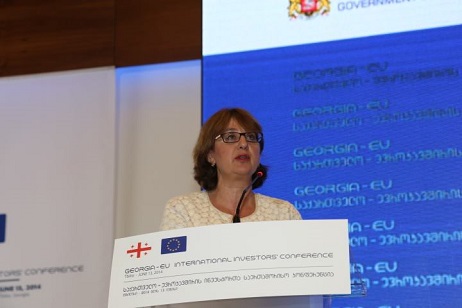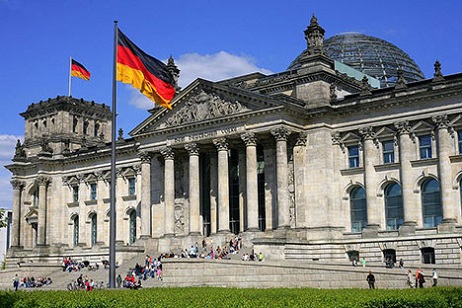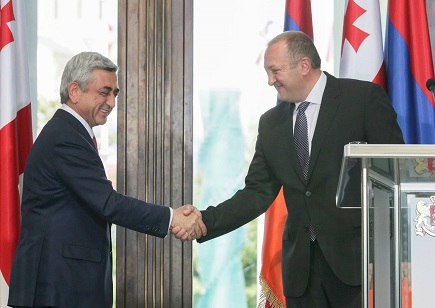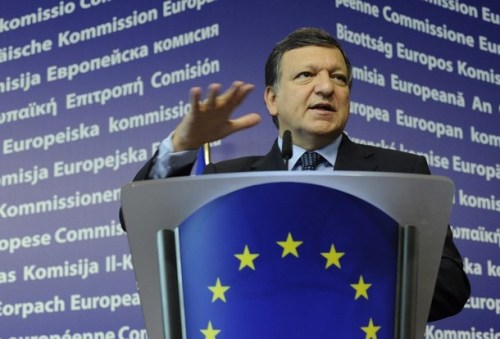Association Agreement outcomes explained
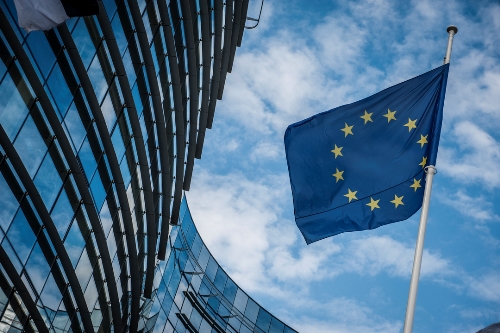
A few days before Georgia signs the Association Agreement (AA) with the European Union (EU), the European Commission released a special statement outlining the importance of the trade deal.
The Commission said signing the AA with Georgia and the Republic of Moldova, and completing the signature process with Ukraine, was an important moment for the EU and the countries involved as the agreements would "significantly deepen political and economic ties between the signatories with a long-term perspective of closer political association and economic integration”.
The statement explained the contents and objectives of the AA and said the document aimed to deepen political and economic relations between the EU and the other signatories and as well as gradual integration of these countries into the EU's internal market, which is the largest single market in the world.
"Following the signature much work will remain to be done on domestic reforms. In this area, the EU and each country will cooperate on: strengthening the rule of law, advancing judicial reforms, fighting corruption, ensuring respect for fundamental rights and freedoms and strengthening democratic institutions," the statement said.
The EU would offer assistance to signatories in various fields, but mainly to develop core reforms - public governance, justice, law enforcement, economic recovery and growth, consumer protection, energy, transport, environmental protection, industrial development, social development and protection, education, youth and culture.
Another main area of cooperation is to develop values-based laws, including democracy and the rule of law, human rights and fundamental freedoms, good governance, a well-functioning market economy, and sustainable development.
Trade was mentioned as the third main area of cooperation where the EU would work with countries to develop a framework to modernise their trade relations to develop their economies, open markets through progressive removal of customs tariffs and quotas. This would be possible by harmonising laws, norms and regulations in various trade-related sectors.
The Commission said the AA would contribute to stability and the promotion of democratic values in the EU's neighbourhood, but would also benefit EU businesses by opening up new markets and providing a more secure business environment when investing in Georgia, Moldova and Ukraine.
According to the statement, the EU will sign the three agreements on June 27, 2012, in the margins of a European Council meeting in Brussels.
"The Association Agreements with Moldova and Georgia will be signed in their entirety, while the signing of the Ukraine Association Agreement concerns the chapters left after the political ones were signed on 21 March,” reads the statement.
The statement said the agreements with all three countries foresee provisional application so that an impact may be expected to a large extent already prior to ratification by the European Parliament and EU member states. This process may take some additional time to be completed.
"The Association Agreements provide for provisional application to start on the first day of the second month after both the EU and the respective partner countries have fulfilled required procedures on their side,” European Commission said.
"Signature and the consequent implementation of the Association Agreements will confirm and seal political association and economic integration with the EU, but the greater the commitment and implementation of the Agreements, the greater the opportunities they will offer.”
For Georgia and Moldova, important provisions regarding conflict prevention, crisis management and regional stability are to be implemented. For Ukraine, there was a provision on regional application (consistent with the non-recognition policy of the illegal annexation of Crimea) included in the Final Act to the Agreement.
The EU promised to work with the three partner countries' Governments and businesses to bring about reforms and upgrade goods and industries to the necessary standards.
"This will benefit an extraordinarily diverse array of sectors,” the statement said.
"Assistance ranges from the modernisation of the agricultural sector, for example to boost rural communities, produce higher quality products, to better regulating financial services, so as to ensure investors' protection and safeguard of the country's financial system.”
In an effort to answer one of the main questions as to how citizens and businesses in partner countries and the EU benefit from the AA, the Commission said once the deals were "signed and implemented, concrete benefits can flow from the Agreements”.
In an example, the Commission said the AA could offer better protection for consumers including lower prices and better-quality products; more business opportunities for small and medium enterprises through a wider opening of markets and, as a result, more jobs and less emigration; better access to improved health services; more efficient use of energy and the development of renewable energy sources; a better functioning judiciary sector, a strengthened rule of law and increased transparency.
"Businesses in the three countries whose goods and practices meet EU standards will be able to trade freely in any EU country without tariffs or restrictions.”
"Likewise, EU goods and services exporters, and EU investors will be able to operate freely in partner country markets and sell more readily and cheaply to businesses and citizens in Georgia, Moldova and Ukraine.”
Also, trade conditions for goods and services, including wide establishment conditions for companies, will be immediately improved for the EU and Georgia, when the Agreement comes into force.
"This will facilitate trade and investment. This is particularly important for Georgia, which needs further foreign investment to boost its economic growth. Georgia’s enterprises will have access to the EU market without transition periods. But it is also true that a number of additional benefits that Georgia will take from the Agreement do depend on the completion of reforms,” the Commission said.
The Commission believed the AA with Georgia would go "significantly further” than classical forms of economic integration, offering not only improved trade and investment opportunities but also assistance in trade-related reforms with the aim to contribute to economic recovery and growth and to better integrate the Georgian economy with world markets.
"For example, Georgian agricultural products will become more attractive on the EU market thanks to the removal of EU import duties worth €5.7m on basic agricultural products and €0.5m on processed agricultural products. New market opportunities in the EU and higher production standards in Georgia will spur investment, stimulate the modernisation of agriculture and improve labour conditions,” reads the statement.
The European Commission believed the AA would allow the Georgian economy to catch up with the EU in terms of competitiveness, and gradually find its place in the world economy. The Commission said this would open up new opportunities not only in EU-Georgia trade, but in Georgia's trade with the rest of the world, given the worldwide recognition of EU norms and standards.
 Tweet
Tweet  Share
Share

